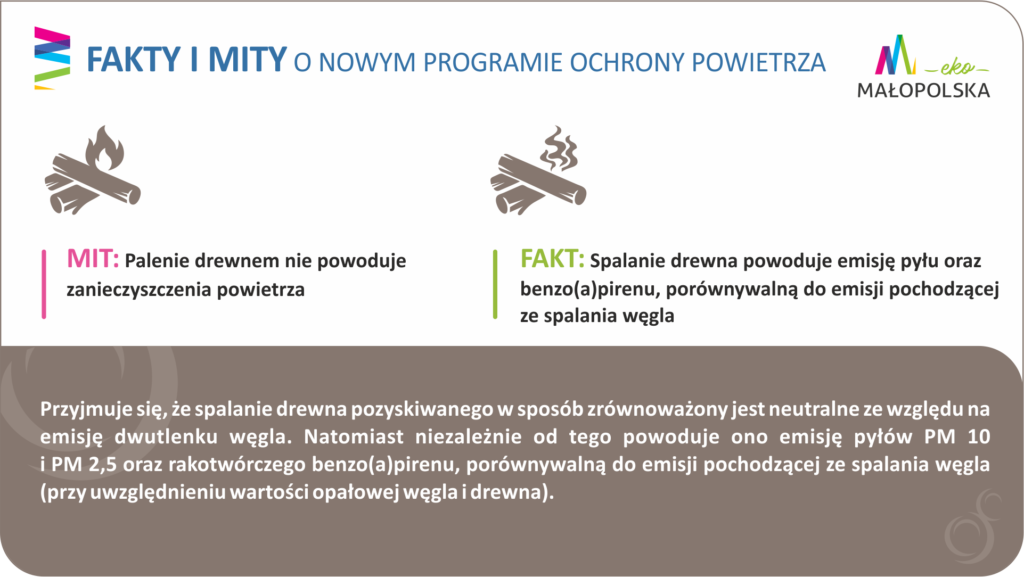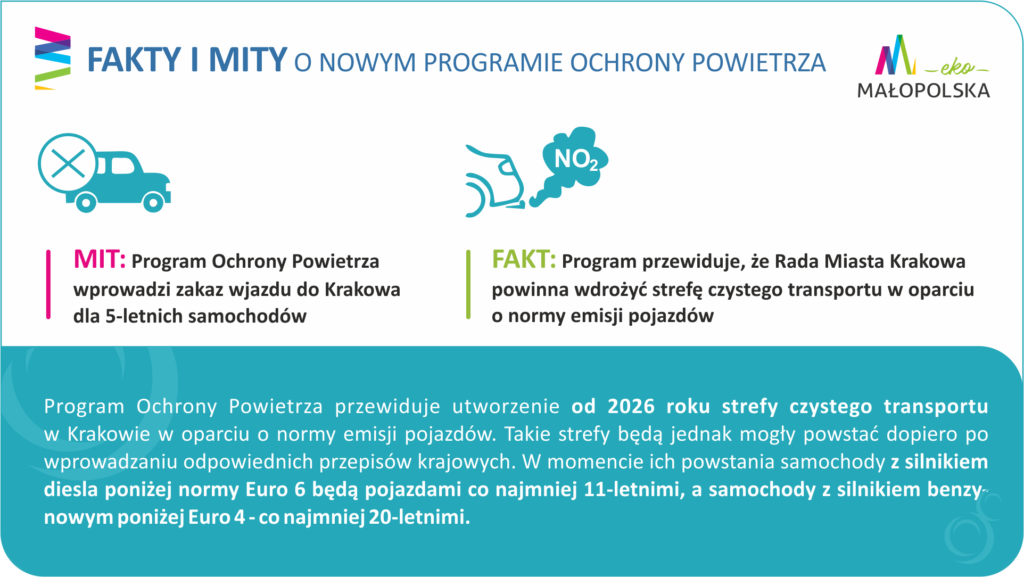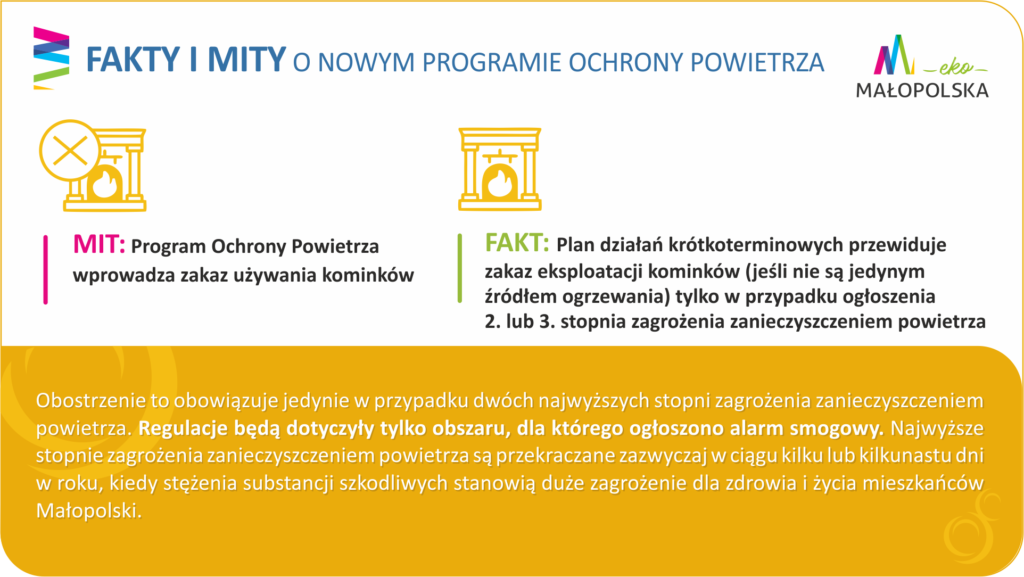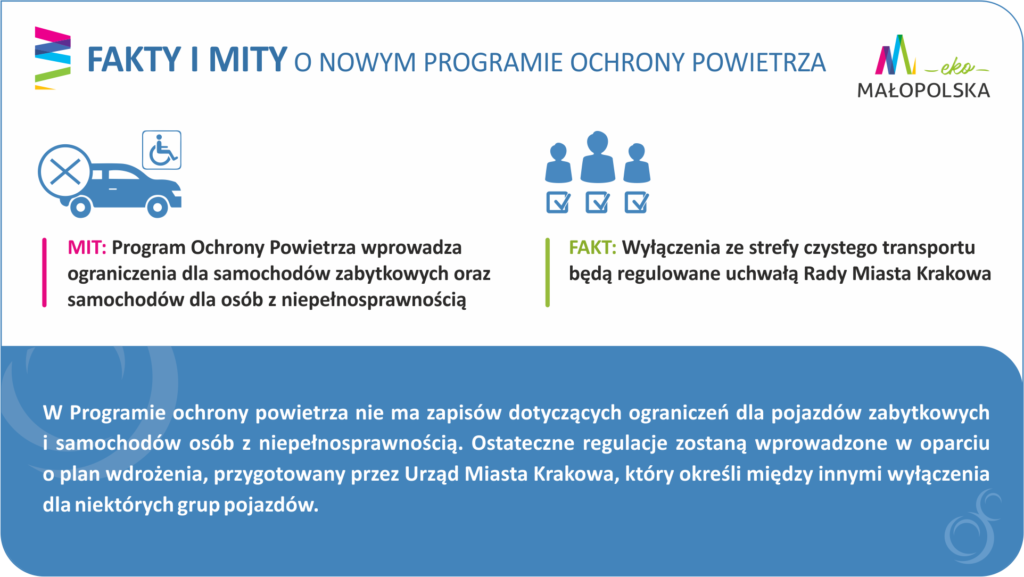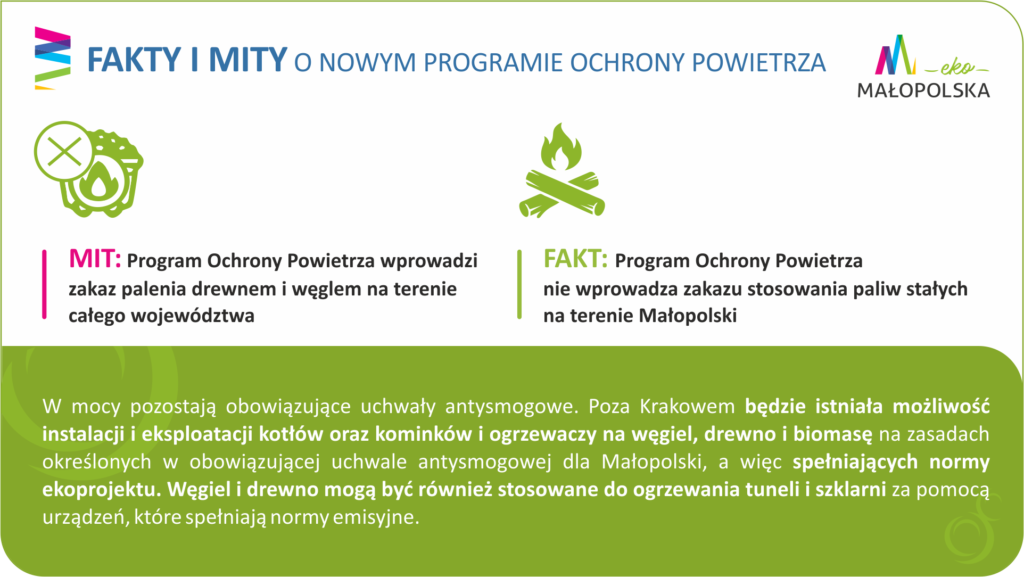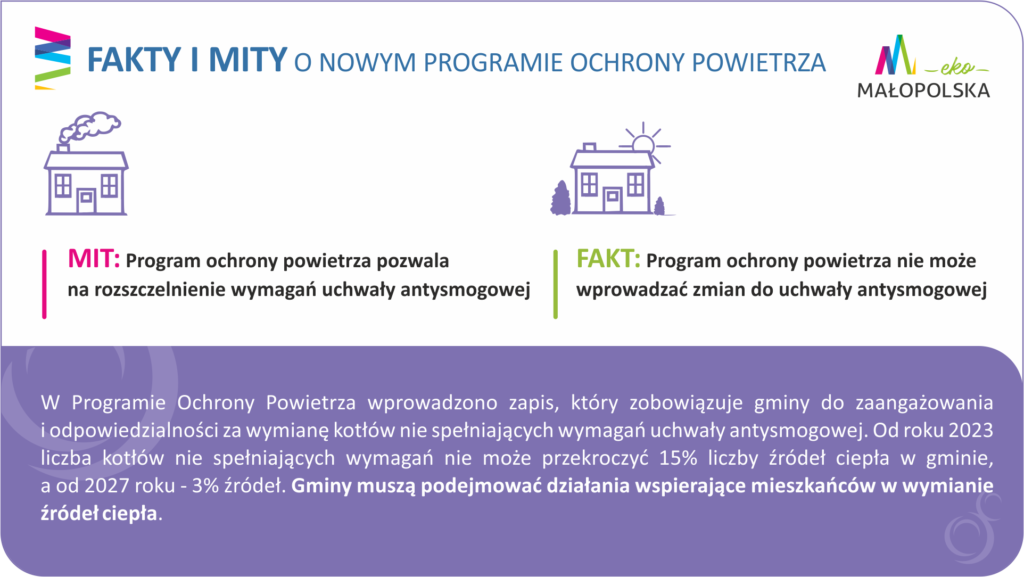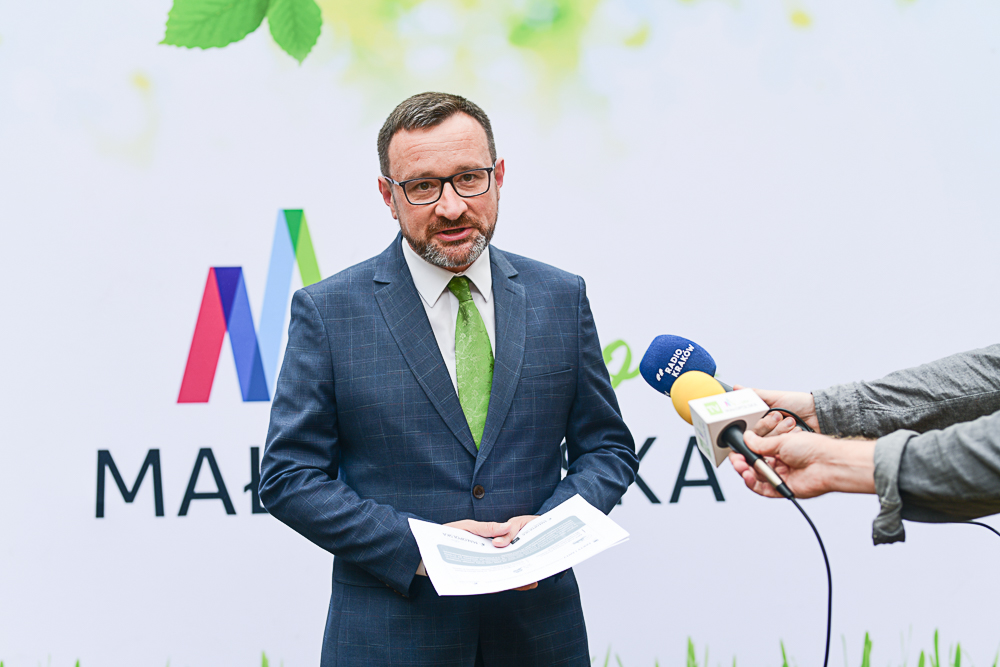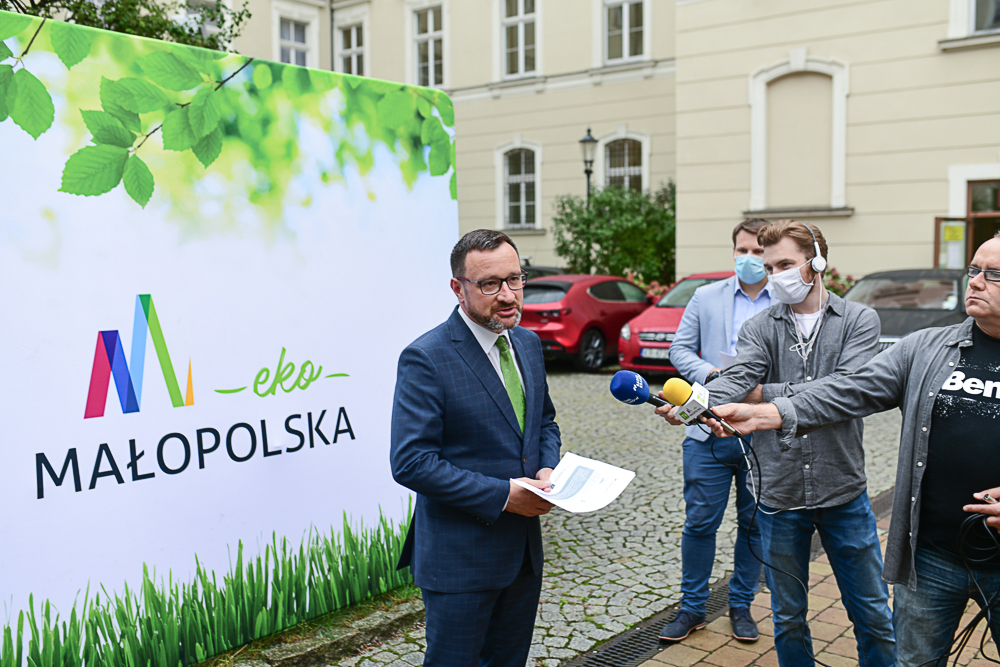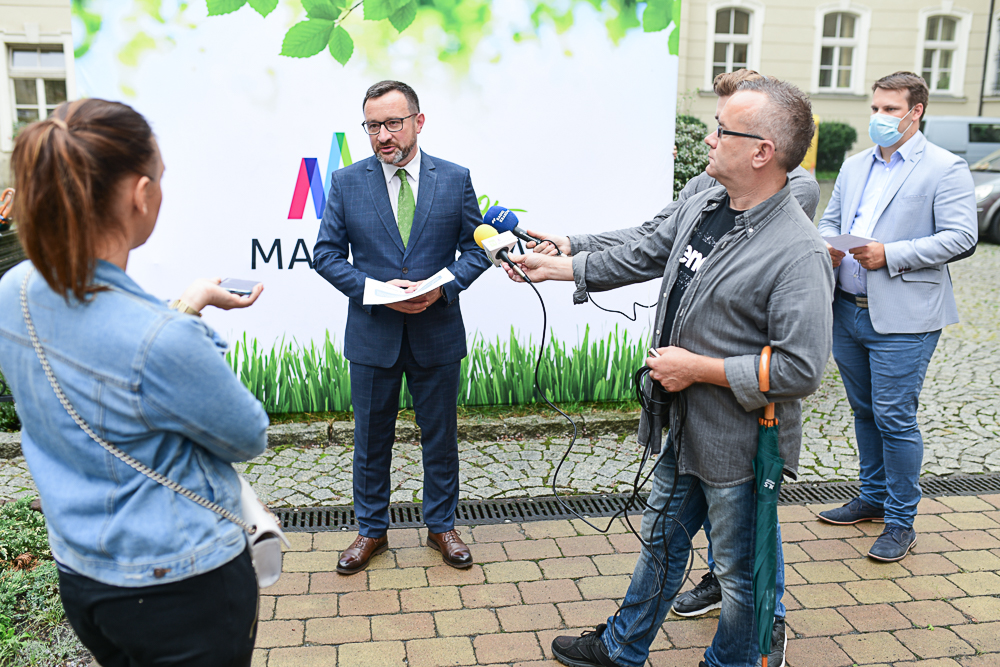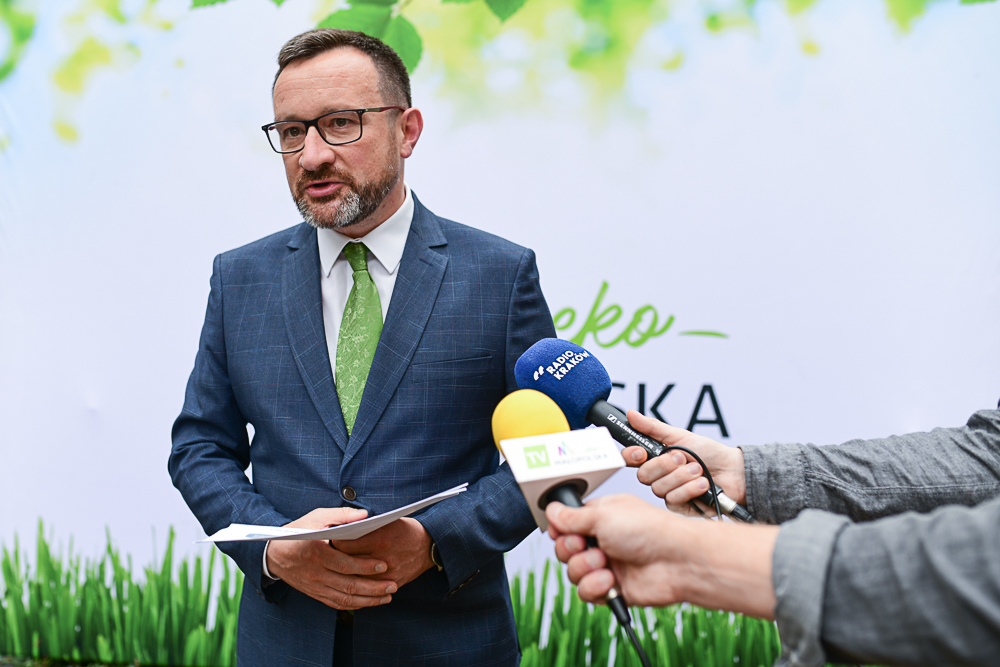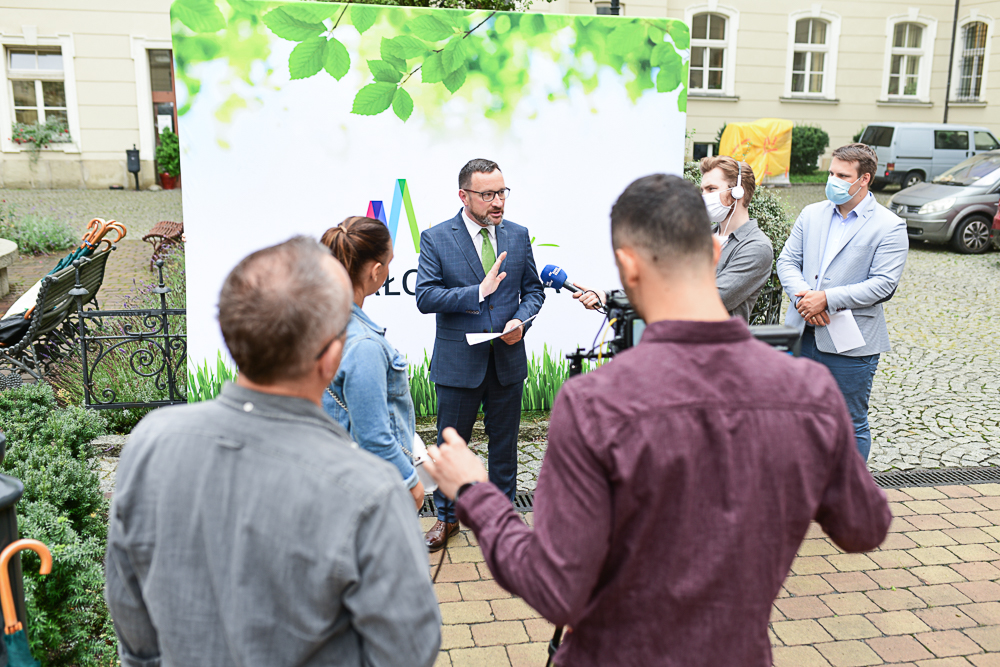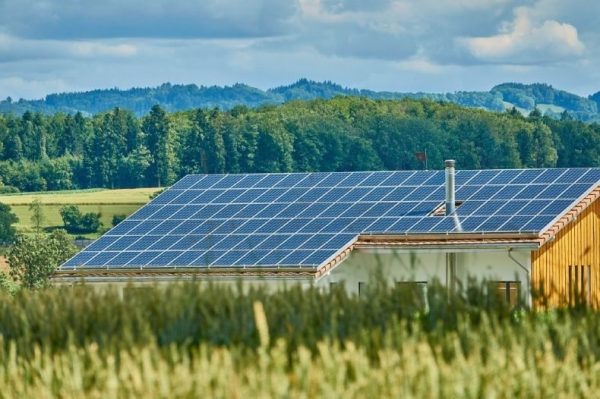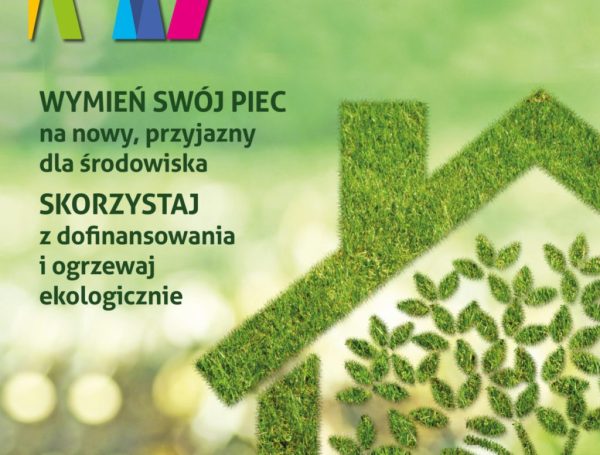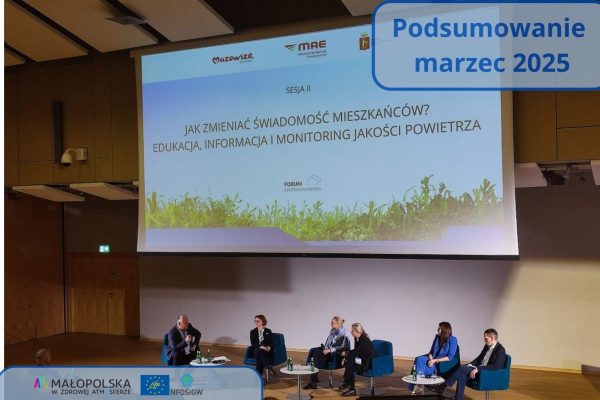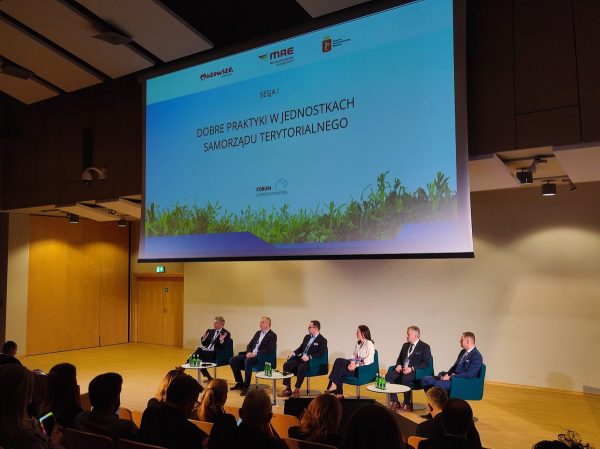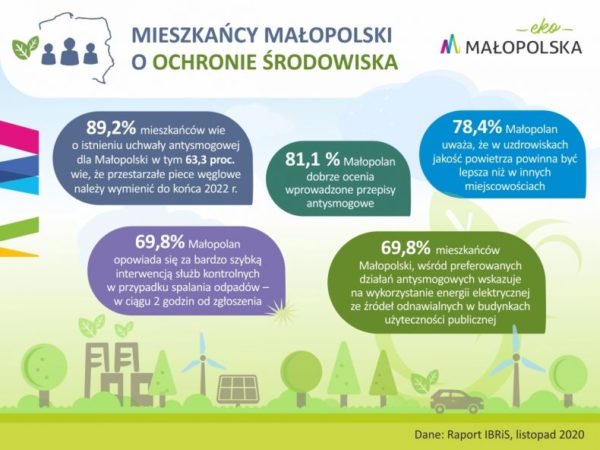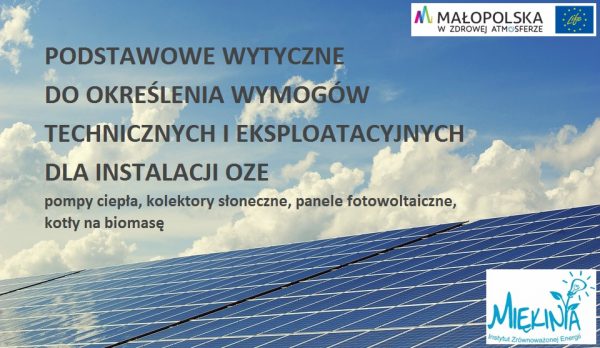Facts and myths of the Air Quality Plan
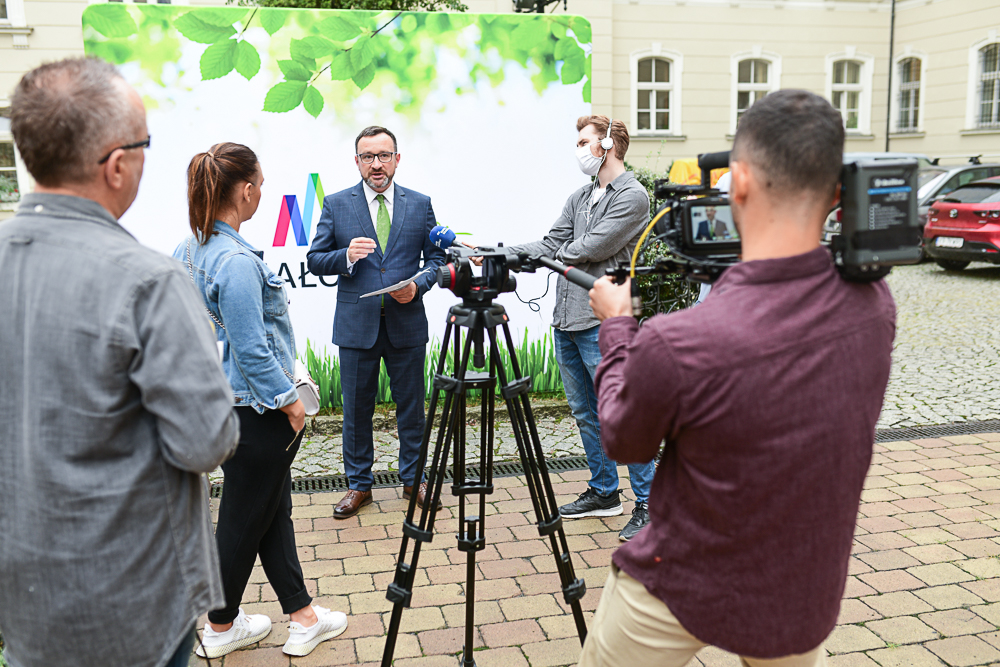
The main goals and the most important activities defined in the Air Quality Plan for the Małopolska Region these are the main issues presented by Deputy Marshal Tomasz Urynowicz during the press conference on Tuesday, 1st September this year.
The main objective of the Program is to improve air quality in the Małopolska Voivodeship. The program – as Deputy Marshal Tomasz Urynowicz pointed out – also serves the implementation of government instruments, such as the Clean Air program, and the full implementation of anti-smog resolutions for Kraków and Małopolska.
The Air Quality Plan requires greater efforts on the part of local authorities to help residents to take advantage of subsidies for the replacement of heating sources, thermal modernisation of buildings and the use of renewable energy sources. Municipalities should also be prepared to help people affected by energy poverty using the Stop Smog programme. Małopolska is aiming at low-carbon transformation, which is also connected with preferences for the use of renewable energy sources,
– noted Deputy Marshal Tomasz Urynowicz.
Jadwiga Emilewicz, the Deputy Prime Minister and Minister for Development, had spoken the day before about the fact that Małopolska sets a nationwide standard for Air Quality Plans.
Not only in Kraków, but throughout Małopolska, the discussion about air quality is no longer a discussion about “whether to deal with it”, but “how to deal with it”, how to carry out this transformation effectively and in a socially acceptable way.
– said Jadwiga Emilewicz
Facts and myths about the new Air Quality Plan for the Małopolska Region:
The most important actions identified in the Air Quality Plan are the following:
- Promoting the use of renewable energy sources by providing higher funding for RES and the use of “green energy” in public buildings,
- Accelerating the implementation of the anti-smog resolution for Małopolska, i.e. replacing old furnaces and boilers,
- Support for the implementation of the Clean Air Priority Program by establishing Service Points for this program in all municipalities of Małopolska,
- Support for people affected by so-called energy poverty in meeting the obligations arising from the anti-smog resolution,
- Preparation of an inventory of all heating sources in municipalities, which will allow for effective implementation of the air protection strategy and support for areas requiring the most intensive activities,
- Ensuring the implementation of the strategy for climate protection at local and regional level by creating an eco-manager position in all municipalities of Małopolska and climate eco-manager position in all districts,
- Information campaigns about the requirements of the antismog resolution and available subsidies in all municipalities at least once a year,
- Controls of waste incineration and compliance with the antismog resolution in municipalities – implementation of planned controls and reactions to notifications under the Eco-intervention application,
- The promotion of sustainable forms of transport: cycling and walking,
- Introduction of a clean transport zone in Krakow after the entry into force of national regulations, in accordance with a detailed implementation plan prepared by the President of Krakow,
- Increasing the public’s access to information on industrial emissions and failures in enterprises and inspections of economic activities in terms of their impact on air quality.
Short-term action plan
Short-term measures are implemented in situations where successive levels of air quality standards are exceeded: the risk of exceeding the alert level (level 3), information on pollution (level 2) or acceptable air pollution (level 1). These activities are addressed to local governments, businesses and residents:
- 1 degree – if the average of the last 12 hours for PM10 concentrations exceeds 80 µg/m3,
- 2nd stage – when there is a risk of exceeding the information level (100 µg/m3 of PM10),
- 3rd degree – when there is a risk of exceeding the alarm level (150 µg/m3 of PM10).
The most important actions during significant air quality exceedances:
1st degree:
- Inspections of furnaces and boilers for waste incineration
2nd degree:
- Inspections of furnaces and boilers for waste incineration
- Lack of activity of children and young people outside
- Restriction of leaf blowers
- Prohibition of fireplaces and local coal and wood space heaters (popular “goat stove “) – when they are not the only source of heating
3rd degree:
- Inspections of furnaces and boilers for waste incineration
- Reducing the activity of children and young people outside
- Restriction of leaf blowers
- Prohibition of fireplaces and local coal and wood space heaters (popular “goat stove”) – when they are not the only source of heating
- Prohibition of construction work related to dust emissions
- Reduction of emissions from industry (introduction of measures to reduce emissions, which are set out in the emissions permit)
What does POP (Air Quality Plan) mean for a residents?
The introduction of the Air Quality Plan will improve the quality of life of residents by reducing the level of pollution in the air. The programme will impose on them obligations to inform the municipality about their heat and electricity source and the need to adapt heating devices (powered by wood and coal) to the requirements of the antismog resolution.
They will also gain measurable benefits:
- Professional advice on furnace replacement provided by the eco-manager employed in each municipality
- Easier access to subsidy programmes – Clean Air Programme customer service point in each municipality
- Current access to information on air quality – information available on the websites of municipalities and cities
- Common access to environmental education through the activities of eco-managers
- Access to information on pollution from industrial sites
- Support for people affected by energy poverty, for example, by creating subsidy schemes for heating costs.


